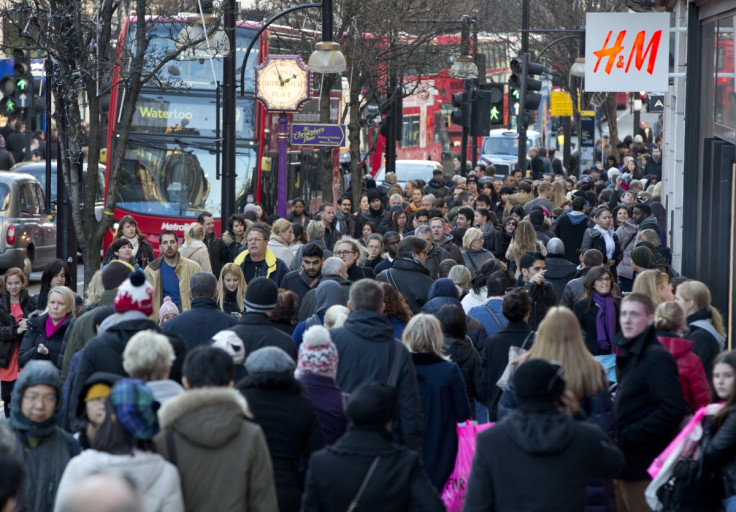UK consumer spending falls for third straight month
Spending falls 0.8% year-on-year in July following a 0.2% drop in June.

Consumer spending in the UK fell for the third straight month in July as rising inflation and stagnant wage growth squeezed shoppers' pockets, a new survey has suggested.
Spending fell 0.8% compared to a year earlier following a 0.2% drop in June, a report from Visa and IHS Markit said.
Expenditure has now fallen for three consecutive months – the longest period of decline recorded in over four years.
The figures were calculated by adjusting Visa credit and debit card transactions for a variety of factors to create a gauge of overall consumer spending.
Five of the eight broad spending categories saw reduced spending volumes in July, with transport and communication and clothing and footwear suffering the biggest falls.
Lower expenditure was also registered in household goods, health and education and food and drink.
Increased spending was seen in the hotels, restaurants and bars category, while recreation and culture returned to growth after declining in June.
"Consumer spend fell for the third month in a row in July, the first time overall spending had fallen for three consecutive months since February 2013," said Kevin Jenkins, UK and Ireland managing director at Visa.
"The figure provides further evidence that rising prices and stagnant wage growth are squeezing consumers' pockets.
"There were still some bright spots in July, with hotels, restaurants and bars reporting a 6% increase. The sector is likely to have benefited from an early surge in summer staycations, as the weak pound made holidaying at home more attractive."
The decline in spending was driven by a 3.7% decrease in face-to-face expenditure, which was partly offset by a 3.6% increase in online spending.
Markit economist Annabel Fiddes added: "Reduced spending comes at a time when the UK economy has been expanding at a relatively modest pace, while households have been facing strong increases in living costs, and a slowdown in earnings growth.
"Alongside the renewed squeeze on household budgets, uncertainties linger over the direction of the economy and the outcome of the ongoing Brexit negotiations, which is weighing down consumer confidence."
© Copyright IBTimes 2024. All rights reserved.






